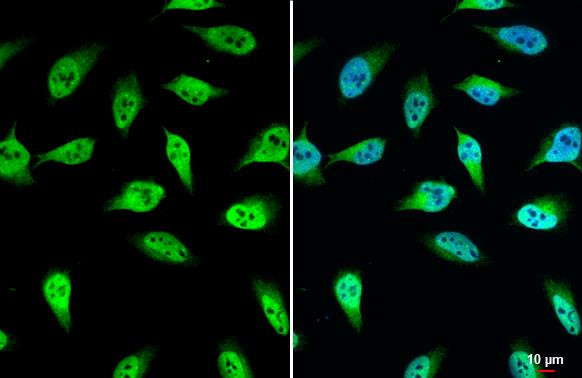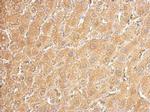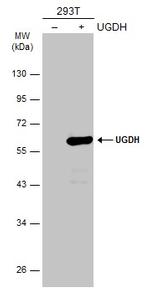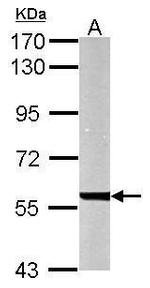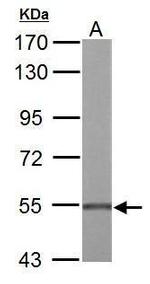Search Thermo Fisher Scientific
Product Details
PA5-28170
Species Reactivity
Host/Isotype
Class
Type
Immunogen
Conjugate
Form
Concentration
Purification
Storage buffer
Contains
Storage conditions
Shipping conditions
RRID
Product Specific Information
Recommended positive controls: HepG2, mouse liver, rat liver, UGDH-transfected 293T.
Predicted reactivity: Mouse (97%), Rat (98%), Zebrafish (91%), Xenopus laevis (94%), Chicken (95%), Rhesus Monkey (98%), Bovine (98%).
Store product as a concentrated solution. Centrifuge briefly prior to opening the vial.
Target Information
The protein encoded by this gene converts UDP-glucose to UDP-glucuronate and thereby participates in the biosynthesis of glycosaminoglycans such as hyaluronan, chondroitin sulfate, and heparan sulfate. These glycosylated compounds are common components of the extracellular matrix and likely play roles in signal transduction, cell migration, and cancer growth and metastasis. The expression of this gene is up-regulated by transforming growth factor beta and down-regulated by hypoxia.
For Research Use Only. Not for use in diagnostic procedures. Not for resale without express authorization.
References (0)
Bioinformatics
Protein Aliases: UDP UGD; UDP-Glc dehydrogenase; UDP-GlcDH; UDP-glucose 6-dehydrogenase; UDP-glucose dehydrogeanse; UDP-glucose dehydrogenase; UDPGDH; uridine diphospho-glucose dehydrogenase
Gene Aliases: GDH; UDP-GlcDH; UDPGDH; UGD; UGDH
UniProt ID: (Human) O60701, (Rat) O70199, (Mouse) O70475
Entrez Gene ID: (Human) 7358, (Rat) 83472, (Mouse) 22235

Performance Guarantee
If an Invitrogen™ antibody doesn't perform as described on our website or datasheet,we'll replace the product at no cost to you, or provide you with a credit for a future purchase.*
Learn more
We're here to help
Get expert recommendations for common problems or connect directly with an on staff expert for technical assistance related to applications, equipment and general product use.
Contact tech support
